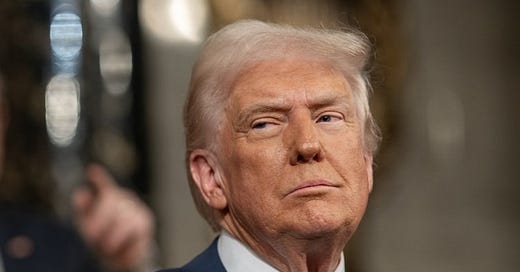So Much for No Surprises
As a pillar of our alliance with America wobbles, what is Israel to do?
Along with “no daylight,” one of the longstanding principles of the U.S.-Israel alliance was “no surprises.” This meant that if the American president planned on making a major policy statement on the Middle East, especially one that impacted our security, Israeli leaders would be given the opportunity to review it first and submit their comments.
So it was with President Bush’s “Road Map” of 2002, a copy of which was sent to Prime Minister Ariel Sharon two weeks in advance. President Obama was the first to discard the “no surprises” principle. He gave his earthshaking Cairo speech of 2009, and many subsequent policy statements on Israel, without giving us the slightest advance notice.
It seems now that the principle has again been discarded. Recent months have seen Israel surprised again and again by the White House. According to press reports, Prime Minister Netanyahu was surprised by President Trump’s announcement of renewed talks between the United States and Iran, about the ceasefire deal with the Houthis, and the decoupling of America’s supply of civilian nuclear power to Saudi Arabia from the issue of Saudi-Israeli peace. Most recently, Netanyahu was reportedly surprised by the deal the administration made with Hamas for the release of the American-Israeli hostage, Edan Alexander.
Contrary to the conventional wisdom of the press, I do not believe that Trump is doing this to downgrade Israel. Surprises are his way of conducting policy, both domestic and foreign. Just ask the leaders of the NATO countries, the G7, and China. Just ask Zelensky. We should be surprised if we’re not surprised.
But enough. Israel must prepare diplomatic contingency plans for any sudden shift in American policy. We must ask ourselves what will be our position if the United States recognizes Palestine, renews Trump’s two-state “deal of the century,” or demands an immediate ceasefire in Gaza? In which instance will Israel be willing to say “thank you but no” to the president and, if we do, what is the price we will be willing to pay? Throughout, we must never give up trying to ascertain what the White House is thinking and which directions it’s liable to take. But we must never be caught completely off-guard or unprepared to respond boldly to changes. The principle of no surprises may be forgotten, but not our ability—and our right—to act as we must to ensure our security. We, too, can surprise.
This article originally appeared in Hebrew in ynet on May 17, 2025.





President Trump’s foreign policy is beginning to shape up as one of retrenching U.S. reach in certain areas of the globe where, in his view, the “locals” are sufficiently wealthy and resourced to carry a greater defense burden.
That explains the U.S. position on Ukraine: it should be primarily a European affair and, somewhat ironically, a test case for the Obama concept of “leading from behind”. Unfortunately for the Ukrainians, the chickens of decades of deliberate military underfunding in most NATO countries have come home to roost in Ukraine.
Recall also VP Vance’s comment about the Red Sea when an attack against the Houthis was being discussed. He wondered why the U.S. was taking charge as, according to him, 40% of traffic went to Europe while only 3% went to the U.S. - suggesting that European navies should be the primary asset, forgetting that those countries (with vanishingly few exceptions) long ago gave up on blue water navies.
But Israel is a different case. It fights for itself, by itself while vindicating major U.S. interests in the region, notwithstanding the preferred narratives in much of the media.
The primary American adversary is China and, simply put, attempting to be everywhere all the time risks overstretching U.S. capacity and imperiling the overall strategy. There is a certain hard hearted but realist cold calculation of national interests going on here.
On the issue of recognizing Palestine, that simply doesn’t seem to be on the table in the U.S., the slew of federal laws against it being only part of it. Especially after the barbarity of October 7, a supermajority of the American public supports Israel.
As a side note, in the attempt to minimize or explain away Hamas’ genocidal tendency, UN Secretary General Guterres infamously claimed the attack did not come “in a vacuum”. It turns out he was right but not for the reason he claimed: we now know from seized documents that Hamas attacked not to vindicate any Palestinian “right” but to derail the adherence of Saudi Arabia into the Abraham Accords.
And that important initiative from the first Trump Administration is another indication of his conception: each region will create alliances to manage local affairs, freeing up the U.S. generally.
I think that’s what America First really means in this context, even as one might have preferred a name not so overburdened with so many negative historical connotations.
The Trump Policy? Anything that assuages his megalomania and malignant narcissism. He has no moral compass. The new leader of Syria is handsome. That's Trump's rational for making a deal? Anything that serves Trump's "big, beautiful" brain.